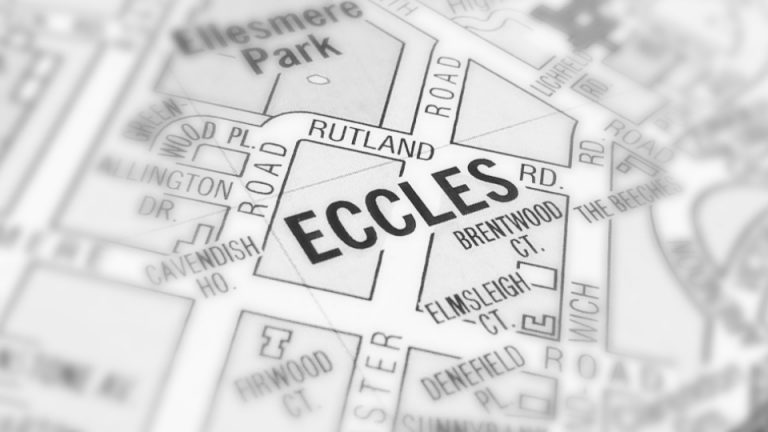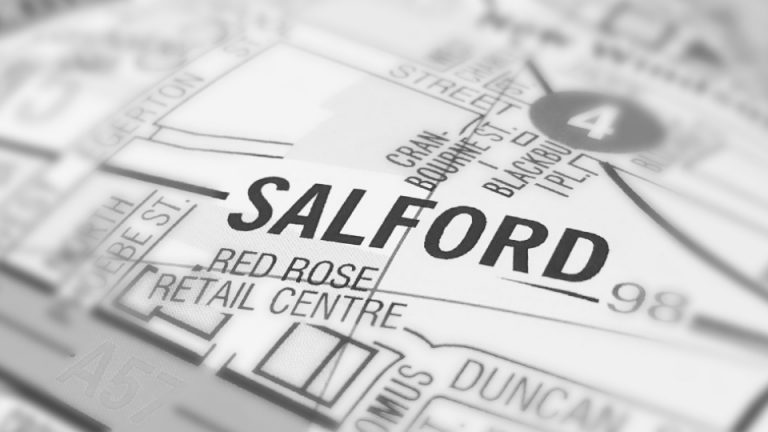
What are the milestones involved in buying and selling property in the UK? A complete guide for homeowners and home buyers.
Navigating the property market can be a complex process, whether you are buying or selling property in the UK. Understanding the key stages involved can help demystify the process and ensure a smoother transaction. Here, we break down the essential milestones for both buyers and sellers and give valuable advice so you can be better prepared for your moving journey. Let’s start with the selling process.
Key milestones in selling property
Selling a house involves several important steps, from initial valuation to final completion. Here’s a detailed guide to help you through the process.
Step 1: Property valuation
The journey begins with understanding the value of your property at the time when you are selling. A good, local estate agent will consider various factors, including the location, size, condition, and recent sale prices of similar properties in the area. They will also consider general economic conditions and demand for a property like yours. Accurate valuation helps in setting a competitive price that attracts potential buyers while ensuring you achieve the best possible price for your home.
TIP: When deciding on which estate agent to choose, consider agents who can demonstrate they have sold similar homes in your area. Ask them to discuss potential buyers they have registered to get a better understanding of how well they know the area and the prices that are being achieved.
Step 2: Get ‘Sale Ready’
Preparing your property for sale is essential to make a good impression on potential buyers. This involves decluttering, cleaning, and possibly making minor repairs or improvements. Enhancing curb appeal can also be beneficial. A well-presented home can significantly influence buyers’ perceptions and lead to quicker, higher offers. If you have time to prepare your home before going on the market, we would strongly recommend a little TLC and home preparation – it really can make a difference to the final sale price achieved.
Step 3: Marketing
Effective marketing is key to attracting buyers. Professional photography, virtual tours, and detailed floor plans are now standard. Your property should be listed on major property portals and social media platforms to reach a wide audience. Quality marketing materials, including brochures and online listings, should highlight your property’s best features.
TIP: This stage is critical to get you maximum interest. The more people who see your property, the more viewings and offers you are likely to get. Choose an agent who takes marketing seriously and who can demonstrate excellence in presentation and extensive marketing reach to buyers.
Step 4: Negotiations
Once your property starts receiving interest, the negotiation phase begins. Skilled negotiators at your chosen local estate agent can help you navigate offers, counteroffers, and ensure you achieve the best possible price from the most proceedable buyers.
This stage requires balancing buyer interest with your financial goals. Your own situation, moving objectives and timescales also play important roles in reaching the best outcomes – for example, it may be more important to you to sell quickly, than to negotiate over the last few pounds. It is also really important that your agent qualifies all offers and buyers for you as a seller – check this before you instruct them!
TIP: The best buyer may not be the person who offers first, or the highest price. Make sure your chosen agent has the ability to qualify buyers financially and that they have checked the chain details before recommending buyers to ensure you don’t accept an offer from an un-proceedable buyer and miss out on better buyers.
Step 5: Sales support
After agreeing on a sale price, the process moves to the sales progression stage. Ideally your chosen estate agent will have a dedicated sales progressor who can coordinate with the buyer, their solicitor, and your solicitor to handle the necessary paperwork of the conveyancing process (see below) and ensure everything is in order. Regular updates and proactive communication can help keep the process on track.
TIP: Ask your chosen agent about their after-sales support structure. Avoid agents who cannot demonstrate strength during this phase or who leave the sales progression to their valuers or admin team. At Hills, we have a dedicated Sales Progression team who will solely concentrate on moving your sale from offer to completion, communicating with you regularly to keep you fully informed.
Step 6: Conveyancing
Conveyancing is a critical part of the property sale process. It involves the legal transfer of property ownership from the seller to the buyer. Here’s what it typically includes:
- Instruction: The first step is to instruct a conveyancer or solicitor. They will gather initial information about the property and any existing mortgage.
- Draft contract: Your solicitor will prepare a draft contract and send it to the buyer’s solicitor. This contract includes details about the sale, such as the price, property boundaries, and any fixtures or fittings included.
- Enquiries and searches: The buyer’s solicitor will conduct searches (e.g., local authority, environmental) and raise any enquiries about the property. These searches ensure there are no issues that could affect the property’s value or the buyer’s enjoyment.
- Negotiations: There might be negotiations between both parties based on the enquiries and search results. Any issues need to be resolved before proceeding.
- Signing contracts: Once both parties are satisfied, the contracts are signed. This signifies commitment to the sale, but it’s not yet legally binding.
- Exchange of contracts: At this stage, contracts are exchanged, and the buyer pays a deposit (usually 10%). The sale becomes legally binding, and a completion date is set.
- Final checks: Before completion, final checks are made to ensure everything is in order. This includes confirming mortgage arrangements and that the balance of the purchase price is available.
Step 7: Completion and handing over keys
Once the final conveyancing checks are done and contracts exchanged, a completion day is agreed. This is when the property changes hands, you receive the sale proceeds and hand over the keys to the new owner.
Key milestones in buying a property
Buying a home, especially for first-time buyers, can be overwhelming. Understanding each stage of the process can make it more manageable and less stressful. Choosing a good local estate agent is also important, an agent who can be by your side throughout to offer guidance and advice. Your chosen agent should be able to demonstrate strong local knowledge and presence.
Step 1: Property alerts
Begin by registering with property portals, estate agents and setting up property alerts. This ensures you are notified as soon as properties that match your criteria become available. Staying updated helps you act quickly in a competitive market. Remember that not ALL properties are registered online (some sellers prefer discreet marketing) so it’s always worth popping in to see your local estate agent or contacting them to discuss your buying criteria and your situation.
TIP: Choose an agent who has strong local coverage, with teams and offices in the areas you are looking to buy. You can register with Hills for all the latest property alerts via our website or pop into our offices in Eccles or Swinton covering Salford and Greater Manchester. You can search our properties here.
Step 2: Mortgage preparation
Securing a mortgage is a crucial step. Consult with mortgage advisors to understand your financial position and obtain an agreement in principle. This document shows sellers that you are a serious buyer with financing in place. Most good estate agents will work closely with reputable independent financial advisors who can offer free initial consultation and search for the best mortgage deals available that match your needs.
TIP: Book an appointment with a mortgage advisor as early as possible. At Hills, we have in-house mortgage specialists who work closely with our sales team so they are fully aware of our buyers’ situations and needs. Read more about how we help buyers here or call 0161 707 4900 to book a free mortgage consultation.
Step 3: Start viewing
Viewing potential homes is one of the most exciting parts of buying property. Attend open houses and schedule viewings to get a first-hand look at properties. Virtual viewings can also be useful, especially for narrowing down your choices.
Step 4: Make an offer
Once you find a property you like, it’s time to make an offer. Your estate agent can assist with negotiations to ensure your offer is competitive, yet reasonable. Consider factors such as the property’s condition, market conditions, and your budget.
Step 5: Find a conveyancer or property solicitor
A conveyancer or solicitor is essential for handling the legal aspects of the purchase. They will conduct searches, prepare contracts, and ensure the transfer of ownership is legally sound. Choosing a reliable professional can help prevent delays and complications. We recommend you do this as early as possible. Ask your estate agent for names of recommended and trusted solicitors or conveyancers.
Step 6: Finalise and move-in
After your offer is accepted, the process moves towards exchanging contracts and finalising the sale. Once contracts are exchanged, the agreement is legally binding, and you can prepare for moving in. On completion day, you will receive the keys to your new home.
Additional tips for sellers
Timing:
Consider market conditions and seasonality when listing your property. Spring and early autumn are traditionally active periods in the housing market.
Open Houses:
Hosting open houses can increase exposure and attract multiple buyers simultaneously. Speak to your estate agent about arranging Open House viewings.
Professional help:
Instructing a reputable estate agent with proven success in your local area can streamline the process and alleviate stress. Make sure to ask agents about their team, their Sales Progression support and contacts with reputable financial and legal help. Check their customer reviews and look at their website to make sure they are a reputable, local estate agent you can trust.
Additional tips for buyers
Budgeting:
Beyond the purchase price, budget for additional costs such as stamp duty, legal fees, and moving expenses. Your estate agent should be able to give you information about projected costs to help you budget.
Flexibility:
Be prepared to act quickly when a suitable property comes up, and be flexible with your criteria to widen your options.
By understanding these milestones and being well-prepared, both buyers and sellers can navigate the UK property market with greater confidence and success.
If you would like further advice or wish to discuss your moving needs, the local teams at Hills are here to help. We have worked with buyers and sellers in Eccles, Salford, Swinton and Great Manchester since we set up Hills as a Manchester estate agent in 2012 to help them achieve their property goals efficiently and with the greatest results.
You can read more about our team, our story and what’s important to us by visiting our About Us page. Of course, feel free to check our Google Reviews too – we work tenaciously every day to maintain our strong Google rating which is currently 4.6 star average with hundreds of 5 star reviews.
You may also be interested in...

Value my property today
Lorem Ipsum has been the industry’s standard dummy text ever since the 1500s, when an unknown printer took a galley of type and scrambled it to make a type specimen book. It has survived not only five centuries




 Buyers
Buyers
 Buyers
Buyers
 Buyers
Buyers
